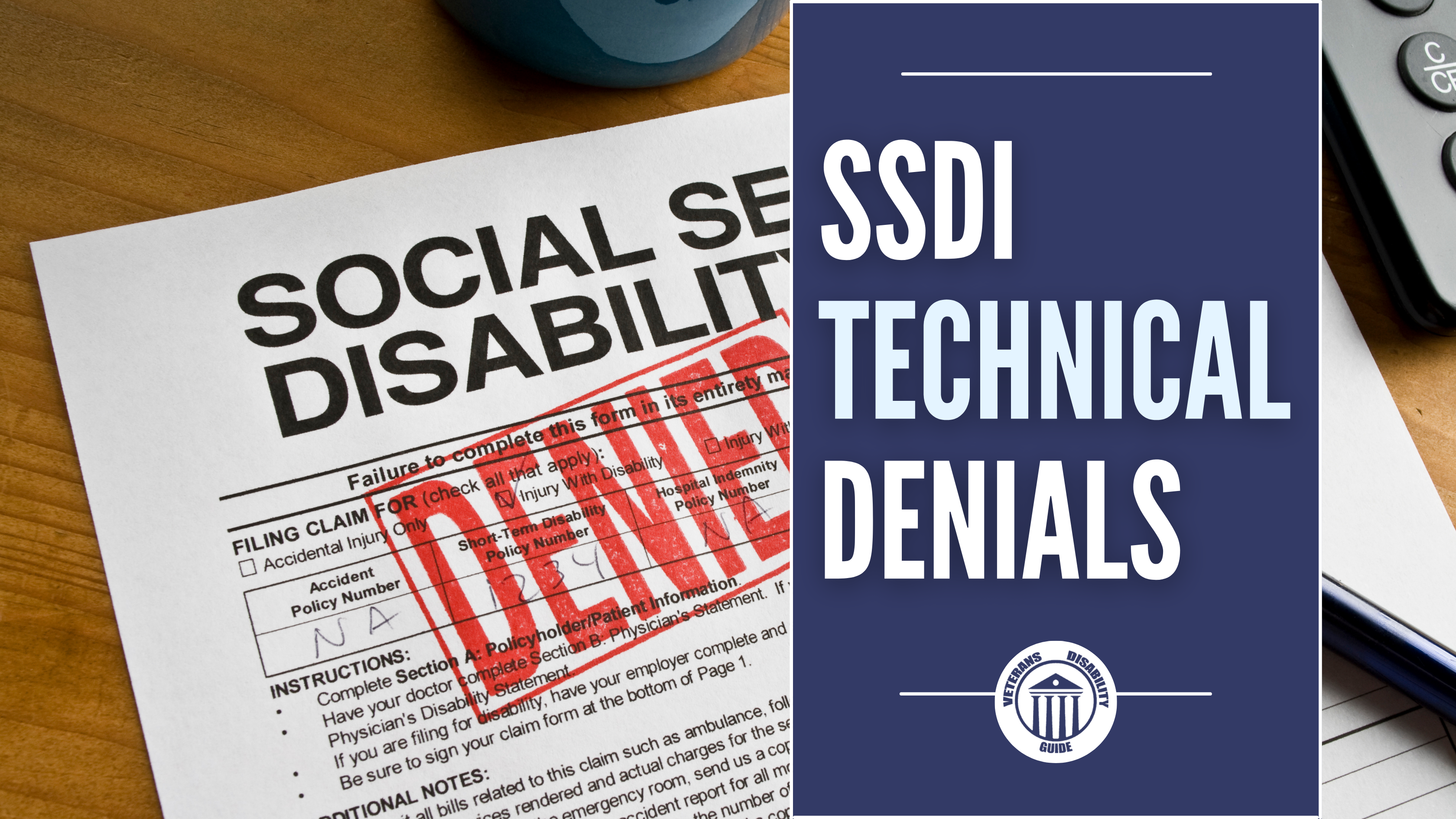
19 Mar SSDI Technical Denials
While some Social Security disability insurance (SSDI) applicants are denied for medical related reasons, many receive technical denials.
According to the Social Security Administration (SSA) over 40% of initial claims receive technical, sometimes called “non-medical”, denials.
Meaning, before the disability claim could even be reviewed to determine if the applicant was disabled, it was denied. Below, we’ll review what a technical denial means, the most common reasons claimants receive these denials, and how to avoid them.
What is a Technical Denial?
A technical denial occurs when an applicant is denied SSDI benefits for a non-medical related reason.
In these cases, the claimants are deemed technically ineligible for SSDI before the SSA reviews their medical evidence.
While technical denials are common, they can be avoidable. By understanding the SSDI requirements, claimants can avoid 2 of the main reasons for technical denials.
The 2 Major Reasons For Technical SSDI Denials
1. You’re Currently Working and Earning Over SGA
To qualify for SSDI, you must be unemployed, or working and earning less than the 2024 substantial gainful activity (SGA) of $1,550 per month.
What Is Substantial Gainful Activity? SGA Explained.
If you are exceeding the SGA limit, your claim would be denied by the SSA, regardless of your medical conditions.
To avoid a technical denial for SGA, make sure you’re aware of the income limits before starting an application. If you’re earning over the monthly $1,550 limit, and you are ready to start your claim, consider reducing your work hours or leaving your job altogether.
There is no waiting period when applying for SSDI benefits, as soon as you are earning under the required limit, you can submit your claim.
The only income that counts toward SGA is “earned income” or money made while working. Any VA benefits you may receive would not count toward the $1,550 limit.
2. Not Enough Recent Work History or Work Credits
The SSA won’t just deny you for working too much, you can also receive a technical denial for not having enough work history.
To be eligible for SSDI, you must have a sufficient amount of work credits. Work credits are a measurement tool used by the SSA to track work history. As you work and pay taxes, you earn credits.
What Are Work Credits? And How They Can Impact Your SSDI Claim.
In general, claimants are required to have 40 work credits, 20 of which have been earned by working 5 out of the last 10 years.
If you have not worked at least 5 out of the last 10 years, your claim will be denied, even if you have worked for years prior.
These work history requirements apply to all applicants, regardless of the severity of their disability. Without the required credits, your claim will be denied.
To avoid a denial with work history, it is important to begin your SSDI claim as soon as you finish work. Once you are unemployed, your work credits begin to expire. After 5 years of unemployment, you are no longer eligible for SSDI.
Appealing a Technical Denial
Since most technical denials are factors that cannot be changed, such as lacking work history, most cannot be appealed.
However, some cases are eligible for appeals. For example, if there was an error on SSA’s end and they wrongly denied your claim, or if your application was denied because it was missing documentation, you may be able to appeal.


